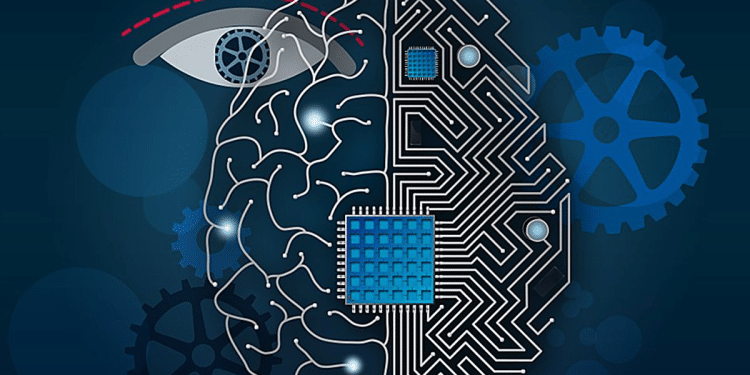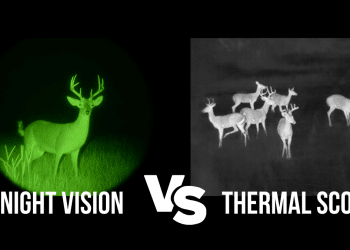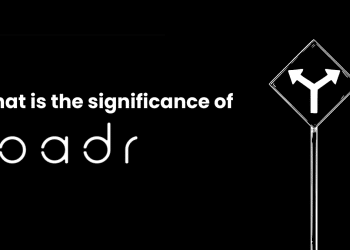Have you ever thought about how cognitive science and artificial intelligence are related? Discover how our thinking merges with technology! Explore how cognitive science and artificial intelligence can shape the world in the future.
Cognitive science is like a team of different subjects. It includes psychology and computer science, working together to understand our brains’ thinking. They try to figure out how we learn things, solve problems, and use language.
Artificial intelligence (AI) is when computers are made smart. Enough to do the things that usually need human thinking. It’s like teaching a computer to learn, think, understand language, and solve problems. AI uses fancy technologies to make computers act cleverly.
Both cognitive science and AI want to understand how thinking works. Cognitive science studies how humans and animals think naturally. Meanwhile, AI tries to make computers act and think like humans. These fields often share ideas to create smarter technology and learn more about how our minds function.
In short, cognitive science and AI are like detectives studying how the mind works. Cognitive science focuses on how humans think. AI aims to make computers think smartly. Both work together to create better technology.
The relationship between cognitive science and artificial inteligence
Cognitive science and artificial intelligence (AI) are closely connected. Cognitive science studies how humans think and understand things. This includes learning, memory, language, and solving problems. On the flip side, AI aims to make machines and programs that can do things smartly, much like humans.
- The link between them is strong
- Creating intelligence similar to humans
- Progressing models of how humans think
- Cross-pollination of ideas
- Enhancing user experience
- Ethical considerations
The link between them is strong
Cognitive science and AI, when combined try to understand how people learn, think, and use information. AI creators use these ideas to design systems that act like humans. For example, when AI understands human learning, it can also learn from data and get better at tasks.
Creating intelligence similar to humans
Cognitive science serves as a framework or blueprint for AI experts to design systems that can mimic human-like thinking and behavior. When AI experts study and comprehend how people think, learn, and make decisions through cognitive science, they aim to replicate those abilities within AI systems.
By understanding human thinking patterns and cognitive processes, AI experts attempt to emulate these abilities in artificial intelligence. This involves developing algorithms, models, and systems that can simulate human-like thinking, enabling AI to perform tasks and solve problems in ways that resemble human cognition. Overall, cognitive science provides the foundation for AI systems to imitate and replicate various aspects of human thinking and behavior.
Progressing models of how humans think
AI serves as a valuable tool for cognitive scientists to test and refine their theories about human thinking processes. Cognitive scientists leverage AI’s computational power and tools to simulate and experiment with various models based on their theories about how people think, learn, and solve problems.
By using AI, cognitive scientists can create computer-based simulations that mimic human cognitive processes. These simulations help in understanding and validating theories about human cognition by observing how these AI models behave and make decisions. This interaction between cognitive science and AI helps researchers gain deeper insights into how our minds work and advances our understanding of human cognition.
Cross-pollination of ideas
Both cognitive science and AI aim to understand intelligence, even though they approach it from different angles. They often exchange ideas and methods to learn from each other.
Cognitive science uses AI techniques to simulate and replicate human thinking processes, helping researchers understand how the mind works. On the other hand, AI incorporates concepts and insights from cognitive science to create more intelligent models and systems. This mutual exchange helps both fields advance their understanding of intelligence and develop smarter technologies and models. They work hand-in-hand, borrowing ideas and techniques to achieve their common goal of understanding and replicating intelligence.
Enhancing user experience
Cognitive science concepts are really helpful in AI to make things simpler and more user-friendly for people. AI designers use knowledge about how humans think to create systems that are easier for us to use. They design interfaces and chatbots, for example, that can better understand how people talk and interact.
By using ideas from cognitive science, AI designers make sure that the systems they create are more user-friendly, intuitive, and better suited to how people naturally think and communicate. This makes technology more accessible and easier for everyone to use.
Ethical considerations
Cognitive science and artificial intelligence collaborate to address ethical concerns related to intelligent systems. By understanding human cognition, AI can be designed to respect human values.
Both cognitive science and AI aim to understand how intelligent beings, like humans, function, albeit from different perspectives. Cognitive science studies human thinking and perception, providing insights into how we understand the world.
AI leverages these insights to create intelligent systems that can perform tasks similarly to or better than humans. Through their collaboration, cognitive science and AI are developing technologies that not only exhibit intelligence but also enhance our understanding of human thought and problem-solving processes. They complement each other, revealing the intricacies of how our minds work.
Is cognitive science a good major for AI?

Cognitive science and artificial intelligence (AI) are closely linked. They’re both about figuring out how the mind functions. Let’s explore why cognitive science is a good starting point for those keen on AI:
- Learning about human thought
- Insights into human behavior
- Enhanced problem-solving skills
- Diverse knowledge base
Learning about human thought
Cognitive science explores how humans think, learn, remember, and solve problems. This knowledge is essential for imbuing AI with human-like behavior. By studying human learning processes, we can instruct AI to emulate similar methods. This approach enables AI to employ strategies inspired by natural human learning and comprehension. Integrating cognitive science with AI facilitates the development of more human-like and efficient learning mechanisms in AI systems.
Insights into human behavior
Cognitive science explores how humans perceive the world, comprehend languages, and make decisions. This knowledge is incredibly valuable for AI systems because it helps them to “see” (through computer vision), “understand” languages (via natural language processing), and “make decisions” in ways that resemble human thinking. By using insights from cognitive science, AI systems can better interpret information, understand languages, and make choices, aiming to emulate human-like abilities in these aspects.
Enhanced problem-solving skills
In cognitive science, you learn a lot about problem-solving strategies and how the mind tackles challenges. These problem-solving skills are really handy when designing AI algorithms because they help in creating systems that can handle difficult tasks and solve complex problems. The knowledge gained from cognitive science helps AI developers create smarter algorithms that can tackle various challenges effectively.
Diverse knowledge base
Cognitive science is like a big umbrella covering different areas like psychology (how we think and feel), neuroscience (studying the brain), linguistics (how languages work), and computer science (working with computers).
Because cognitive science looks at the mind from many angles, it gives a wide understanding of how our thinking works. This is super helpful for AI projects that need different kinds of ideas and perspectives. It’s like having a big toolbox with lots of different tools to solve problems in AI.
Designing AI for people
Knowing how humans think is really important to make AI that people can use easily. However, to be really good at AI, you also need other skills like computer programming, data analysis, and engineering. These skills make the foundation of cognitive science even stronger and help create more advanced AI systems.
When you combine what we know about how people think with these technical computer skills, it creates a really powerful set of abilities for working with AI. This combination helps to build really smart AI systems that can do amazing things!
Is cognitive psychology related to AI?
Cognitive psychology is a branch of psychology studying how our minds work—seeing things, remembering, and problem-solving. It delves into language and decision-making. This knowledge helps create AI systems mimicking human intelligence. Thus, cognitive psychology is related to AI.
AI aims to make smart systems for tasks requiring human-like smarts. Using insights from cognitive psychology helps create and refine AI technology.
Here’s how cognitive psychology intersects with AI:
- Informing AI design
- Human-centered AI
- Improving how AI learns
- Boosting problem-solving skills
Informing AI design
Cognitive psychology and AI helps developers to grasp how humans process information, learn from experiences, and make decisions. This helps in shaping AI algorithms that imitate human-like cognitive processes.
Human-centered AI
AI designers are like architects who use ideas from cognitive psychology to make systems easier for people to use. They create AI interfaces, language models, and decision systems that work the way humans naturally think and behave. By doing this, they make sure that when people use these systems, it feels familiar and easy, just like how they naturally think and act.
Improving how AI learns
Cognitive psychology looks at how we learn things and remember them. This knowledge is super useful for AI algorithms. It helps these algorithms learn from information they get and deal with new situations in a smarter way. In simple terms, it’s like teaching AI how to learn and remember stuff, just like we do!
Boosting problem-solving skills
Cognitive psychology teaches us how people solve problems. Experts in AI use this knowledge to improve algorithms, which are like step-by-step instructions for computers. This helps AI become better at solving tricky problems, acting more like how humans solve them and understanding how people think in the process.
What is cognitive intelligence in artificial intelligence?
Cognitive intelligence in AI means making AI systems act like humans. It’s about creating AI models and systems that can see and learn. It also involves understanding language and solve problems.
Here are critical aspects of cognitive intelligence in AI:
- Perception and sensory understanding
- Learning and adaptation
- Reasoning and problem-solving
- Natural language processing (NLP)
- Memory and contextual understanding
- Emulating human-like behavior
Perception and sensory understanding
Cognitive AI works a lot like us in understanding things. For instance, in computer vision, it looks at pictures and identifies objects, similar to how we do. Also, in speech recognition, it listens to sounds and understands spoken words, almost like how humans hear and understand speech. AI uses these abilities to “see” images and “hear” and understand spoken language, just like we do.
Learning and adaptation
Cognitive AI is like a clever learner. It uses machine learning to become better by looking at information and past experiences. It’s great at finding patterns and guessing what might happen next.
One cool way it learns is through something called reinforcement learning. This is a type of machine learning where AI tries things and learns from what happens, a bit like when we learn from our mistakes. It gets smarter by changing the way it works based on the results it gets.
Reasoning and problem-solving
Cognitive intelligence in AI is like problem-solving and thinking logically. AI uses special ways (algorithms and decision-making) to figure things out. It helps AI look at tricky situations, find answers, and come up with solutions.
This smart ability is used in different areas like robotics. AI helps robots move around and do tasks on their own in places like factories or even outer space!
Natural language processing (NLP)
NLP (Natural Language Processing) is like a special tool for AI. It helps AI understand languages, talk to us, and even translate between languages. AI uses NLP for things like making chatbots that chat with people or translating words from one language to another.
When NLP gets really advanced, using special things like neural networks and deep learning, AI gets better at understanding and speaking just like humans do. It helps them understand what we say and reply in a way that sounds more human-like.
Memory and contextual understanding
Think of cognitive AI systems like super smart computers. These systems have memory, just like how we remember things. They can think about what happened before and use that information to make decisions. They’re really good at understanding situations because they remember past experiences, kind of like how people do. This helps them make choices based on what they know and what’s happening right now.
Emulating human-like behavior
Cognitive intelligence and AI aims to imitate human behavior and thinking. Some smart people are working to make AI (Artificial Intelligence) that can act like humans. They want these machines to understand feelings, be creative, and know how to talk with people. For instance, they want the AI to recognize if someone is happy or sad by looking at their face or listening to their voice.
This kind of AI tries to be like us in how it acts and thinks. It wants to be good at talking, solving problems, and making decisions, just like humans do. The main goal is to make really smart systems that can think almost as well as we do.
Cognitive science careers
Cognitive science careers provide various chances for those keen on comprehending the human mind. Here are diverse career options within the cognitive science field:
- Research scientist
- Neuroscientist
- Human-computer interaction (HCI) specialist
- Data scientist/analyst
- UX/UI designer
- Language scientist/linguist
- AI/Machine learning engineer
- Clinical psychologist/therapist
- Academic or industry consultant
Research scientist
Scientists in Cognitive science careers are like explorers who try to understand how our minds work. They do tests and experiments, make plans for their studies, and look at information to learn about how humans think. They check out things like memory (remembering stuff), decision-making (choosing things), focus (paying attention), how we see things, and how we talk. You can find these scientists working at universities or special places where they do research. They find out really cool stuff about how our brains and thoughts work.
Neuroscientist
Neuroscientists in cognitive science career are like detectives who study the brain and how it affects the way we act. They look at how the brain is built and how it works using special machines like MRI or EEG. These machines help them take pictures of the brain and understand how it processes information. People who work in neuroscience have different jobs. Some do experiments to learn more, some help patients, some work on medicines, and some create new technologies related to the brain.
Human-computer interaction (HCI) specialist
HCI (Human-Computer Interaction) specialists are like designers who use what they know about how people think to make technology easy to use. HCI is a Cognitive science career. They look at how we use things like computers, phones, or tablets. Their job is to make sure that using these devices feels good and is simple for us. People who work in HCI have jobs in places like tech companies, labs where they do experiments, or companies that give advice. They design things like websites, apps, or devices so that they work well with how our brains work.
Data scientist/analyst
Cognitive science careers helps us understand how people think and behave. Data scientists, who are like detectives of information, use these ideas to look at really big sets of information about how people act, decide things, and see the world. They use math, computer programs, and cool pictures to understand this information better and learn important things from it.
UX/UI designer
UX (User Experience) and UI (User Interface) designers use what they know about how people think and act to make things easier to use on computers or phones. They focus on how our brains work when we use apps or websites. Their job is to make sure these digital things are easy to use and that people like using them. They want to make sure that when you use an app or a website, it feels good and is simple to understand.
Language scientist/linguist
Language scientists and linguists are like detectives who study how people learn and use language. They look at things like what words mean, how sentences are put together, and the sounds we make when we speak. They want to understand how we learn languages and how our brains process language. Some focus on using computers to understand language better, while others look at how our brains work when we talk and understand languages.
AI/Machine learning engineer
Engineers who work with AI (Artificial Intelligence) and machine learning use ideas from cognitive science to create clever systems. They make computer programs and models that work a bit like how our brains do. By using what they know about how our minds work, they design AI systems that are really good at learning new things and solving tricky problems.
Clinical psychologist/therapist
When people study cognitive science and finish their studies, they can choose to become clinical psychologists. These psychologists help with mental health. They use what they’ve learned about how the brain works to help people who are having a tough time with their feelings or thoughts. They use special ways of talking and treatments to help these individuals feel better and deal with their problems.
Academic or industry consultant
People who study for Cognitive science career help different kinds of groups like business, schools, and tech companies. They know a lot about how people make choices, act, and learn. These experts give advice and ideas in areas like research, technology, healthcare, design, and consulting. They use what they know about how our brains work and how we behave to help these groups.
Who is the father of artificial intelligence?

The domain of AI has benefited from the input of numerous influential researchers. Given its collaborative and progressive essence, there isn’t a sole pioneer who is the “father” of Artifial Intelligence. Nevertheless, several figures significantly contributed to advancing and popularizing AI concepts:
- Alan Turing
- John McCarthy
- Marvin Minsky
- Herbert Simon and Allen Newell
Alan Turing
Alan Turing was a brilliant mathematician, logician, and computer science pioneer. His 1950 paper, ‘Computing Machinery and Intelligence,’ introduced the concept of the Turing machine, laying the groundwork for AI models.
He proposed the Turing Test, aiming to evaluate a machine’s human-like intelligence. If a computer’s responses couldn’t be distinguished from a human’s in a conversation, it was considered intelligent. This idea sparked AI research to create machines capable of human-like interaction
John McCarthy
John McCarthy, who coined the term ‘artificial intelligence,’ organized the 1956 Dartmouth Conference, marking AI’s birth as an official field. He pushed for AI as a scientific discipline, setting goals and research directions. McCarthy made key contributions to symbolic reasoning and pioneered early AI programming languages, including the influential LISP language
Marvin Minsky
Minsky, a co-founder of the MIT AI Lab, was a pivotal figure in AI. He investigated human intelligence and machine learning, aiming to mimic cognitive processes in machines. His exploration spanned neural networks, robotics, and symbolic reasoning. The book ‘Perceptrons,’ co-authored with Seymour Papert, highlighted early neural network limitations, laying the groundwork for future advancements.
Herbert Simon and Allen Newell
These pioneers greatly influenced AI by creating the Logic Theorist, an early AI program that solved math problems and proved theorems. Simon and Newell pioneered ‘symbolic AI,’ using symbols and rules to simulate human reasoning. Their work established problem-solving methods in AI and set the stage for future research. Their contributions shaped the foundation of AI, leading to its ongoing growth and development across various disciplines
How many artificial intelligence are there?
The term “artificial intelligence” (AI) refers to various technologies and systems that imitate human intelligence or perform tasks that typically require human abilities. AI can be grouped into several categories based on its capabilities and functions. Here are some common types of AI:
- Narrow AI (weak AI)
- General AI (strong AI)
- Machine learning (ML) and deep learning
- Reinforcement learning
- Cognitive Computing
- Expert systems
Narrow AI (weak AI)
These AI systems are made for certain jobs. They’re good at helping you with your voice, suggesting things you might like, recognizing pictures, and playing games like chess or Go.
General AI (strong AI)
General AI tries to be smart in many ways like humans. It learns, thinks, and uses info like us. But right now, it’s more of an idea than something real.
Machine learning (ML) and deep learning
ML and deep learning are parts of AI that train algorithms. They learn patterns and guess or decide things from data. These help AI do lots of things like understanding language, knowing pictures, talking, driving cars, and suggesting stuff
Reinforcement learning
This is a type of machine learning where AI agents learn by interacting with an environment. In return, they receive feedback in the form of rewards or penalties. It’s often used in robotics, gaming, and optimization problems.
Cognitive Computing
These smart AI systems can think like humans. They understand words and can help you by giving advice or information.
Expert systems
AI programs act like smart experts in fields like medicine or finance. They give advice based on rules and knowledge.
AI keeps changing and getting better. There are many AI systems, and new ones come as scientists learn more. This helps AI do more things in different jobs and places. As they learn more, they make AI even smarter
What is cognitive science in artificial intelligence?
AI uses ideas from cognitive science to understand how people think and learn. Cognitive science studies how our minds work, like how we solve problems and understand things. It looks at psychology, neuroscience, languages, and more to learn about how our brains and thoughts function.
- Shaping AI algorithms
- Learning and adaptation
- Natural language processing (NLP)
- Human-centered Design
Shaping AI algorithms
Cognitive science helps make AI smarter by showing how humans think. This helps AI copy human thinking when making decisions or learning new things.
Learning and adaptation
Cognitive science ideas assist AI in learning better from data. Using theories from cognitive psychology, AI models can get better at learning, just like humans do.
Natural language processing (NLP)
Cognitive science and AI when combined understand human language better. The ideas from language studies in cognitive science guide how AI systems interpret and understand language.
Human-centered Design
Cognitive science helps AI build systems that work better for people. It helps create interfaces and systems that are easy for us to use. It also helps AI solve tough problems and make smart choices.
Basically, cognitive science makes AI smarter and more like how humans think. This helps AI systems help us in ways that feel more natural and easy.
Is cognitive science good for artificial intelligence?
Cognitive science holds significant importance for artificial intelligence (AI) due to multiple reasons:
- Grasping human thinking
- Guiding AI algorithms
- Enhancing user interaction
- Improving learning capacity
- Advancing language processing
- Problem-Solving Techniques
Grasping human thinking
Cognitive science studies how we think, learn, and solve problems. It helps make AI act more like humans by understanding our minds.
Guiding AI algorithms
Cognitive science guides how AI algorithms are made. Understanding behavior helps create AI that acts more like humans, making smarter and more human-like models.
Enhancing user interaction
Using cognitive science ideas, AI designers make systems like chatbots easier to use. These systems understand people better, making interactions smoother and more comfortable for users.
Improving learning capacity
Cognitive science ideas about learning and memory help AI get better. They make AI systems smarter, helping them learn from new information and improve.
Advancing language processing
Cognitive science helps AI understand language better. It makes AI language models smarter in interpreting, creating, and understanding human language.
Problem-Solving Techniques
Cognitive science gives AI methods to solve problems. It helps AI systems handle tricky tasks better.
Cognitive science gives us important ideas for making AI smarter and more human-like. It helps build better AI, blending with technical skills like computer science and math.
What are the three cognitive skills of AI?
In AI, cognitive skills refer to abilities or functionalities that AI systems possess. It allows them to perform tasks that involve human-like thinking and intelligence. Three fundamental cognitive skills of AI include:
- Perception
- Learning
- Reasoning and problem-solving
Perception
AI functions somewhat like how we use our senses to comprehend the world. Like we see and hear things, AI machines do similar tasks. They can understand images and videos (called computer vision) or comprehend spoken words (speech recognition). They use tools like cameras or microphones to gather information, much like our eyes and ears, helping them learn about their surroundings.
Learning
AI learning is similar to when you learn something new through experiences. Machines can learn from the information they gather. They use different ways like supervised learning, unsupervised learning, reinforcement learning, and deep learning. These methods help AI systems improve by learning from the information they get.
Reasoning and problem-solving
AI systems have skills to think and solve problems. They use information to make choices and find solutions. This includes using logic to figure things out. AI algorithms apply these skills to understand information and provide answers. They work in areas like robotics, games, decision-making, and self-driving cars.
These abilities help AI systems understand their surroundings, learn from data, and make smart choices or solve tough problems. Using these skills helps AI perform tasks resembling human intelligence across various fields and jobs.
What is the difference between cognitive science and artificial intelligence?

Cognitive Science and artificial intelligence are related fields but focus on different aspects. Cognitive science studies how our minds work—thinking, learning, and problem-solving by blending ideas from different areas. AI focuses on making machines act like humans, teaching them languages and smart behaviors. Cognitive science and AI provide insights into human intelligence to make smart technologies. AI, in return, tests cognitive theories, advancing our knowledge of intelligence. Both fields link in understanding human and artificial intelligence.
Conclusion
The intersection of cognitive science and artificial intelligence fuels innovation.Combining cognitive science and AI algorithms helps machines mimic human thinking. The teamwork of cognitive science and AI makes technology better and helps us understand intelligence more. Knowing how important cognitive science is for AI jobs shows how much technical skills matter. This teamwork keeps making smart systems better, creating new things, and helps us learn more about how smart humans are.
- “As chicaadmin at The Chicago Weekly, I curate trending national and international news stories with a focus on social justice and cultural impact. My passion for journalism and commitment to independent media are fueled by my Chicago roots and belief in the power of storytelling to connect communities. Follow me on Twitter for insightful commentary and news updates!”















